13 Dining Rules That Waitstaff Wish You Knew Before You Sat Down
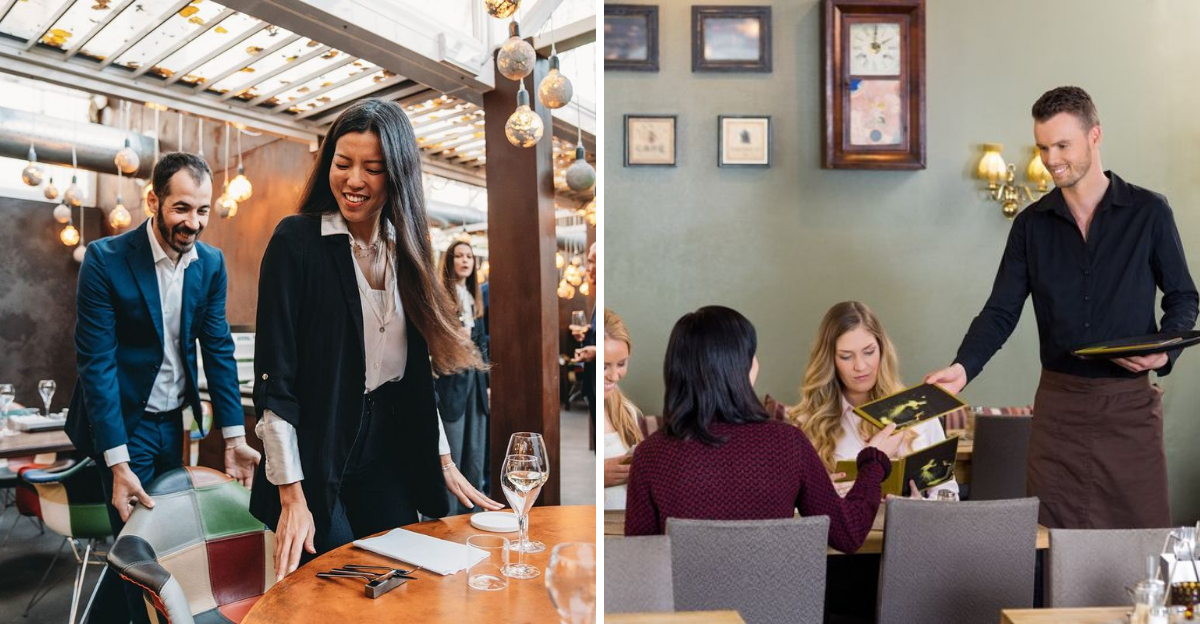
Dining out is an experience that involves not only enjoying good food but also respecting the environment and the people who make it possible. Understanding certain unspoken rules can enhance the dining experience for you and those around you. Here are 13 essential rules that waitstaff wish diners knew before sitting down.
1. Don’t Seat Yourself Unless There’s a Sign Saying So
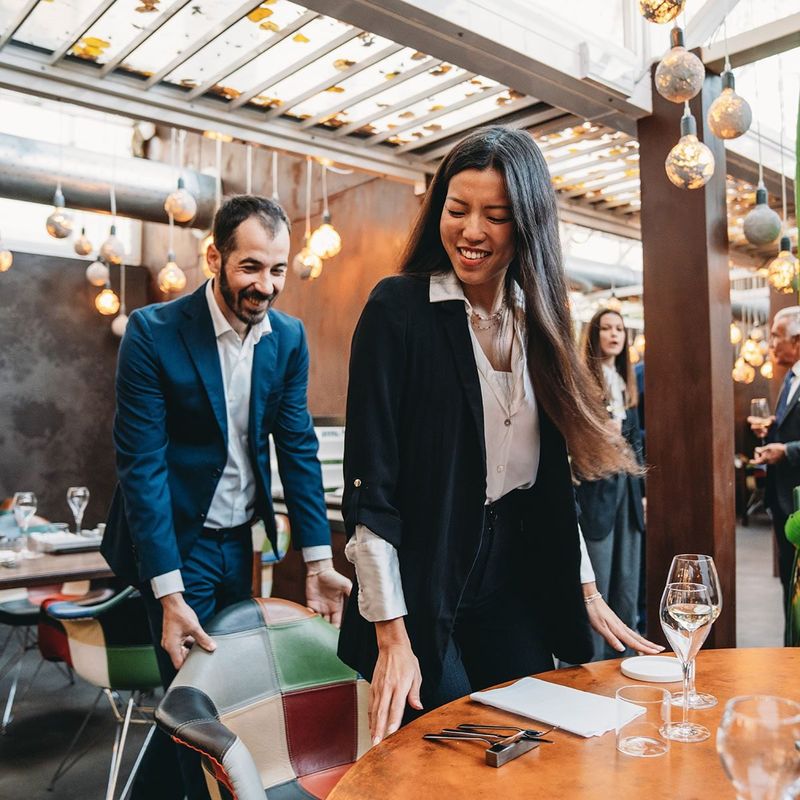
Entering a restaurant and seating yourself without waiting for guidance can disrupt the flow of service and might lead to confusion. Many establishments have particular tables reserved or closed for specific reasons, such as staffing or reservation constraints. By waiting to be seated, you’re helping maintain an orderly and efficient dining environment. Plus, hosts are there to make sure you get a suitable table for your party size. Remember, a little patience can go a long way in setting the tone for a pleasant dining experience.
2. Be Ready to Order When You Call the Server Over
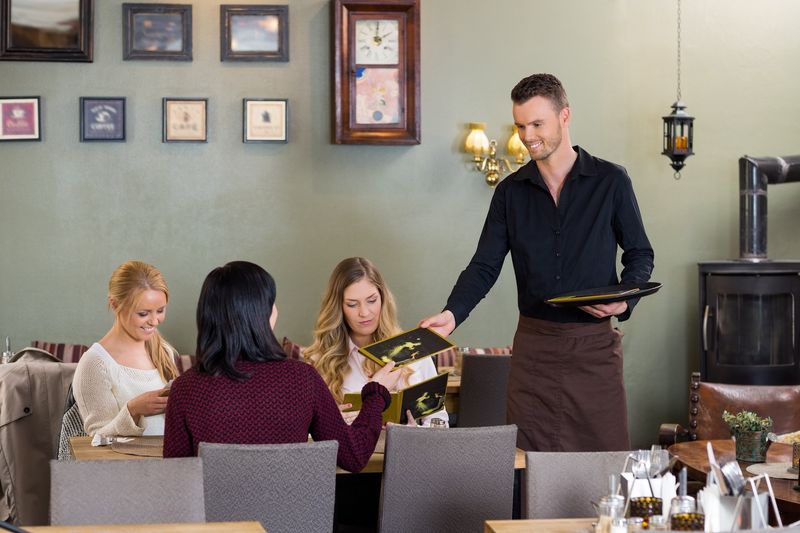
Servers are always on the clock, and when you signal you’re ready to order, it takes them away from other tasks. If you then indicate you’re not ready, it can be frustrating and inefficient. To provide the best service, waitstaff need to manage their time effectively, and knowing you’re prepared helps them greatly. Consider using the time before calling them over to finalize your choices. This ensures that when they arrive, the process is smooth and respects everyone’s time.
3. The Menu Isn’t a Negotiation Tool

Menus are carefully crafted to offer a variety of choices that align with the kitchen’s capabilities. While slight modifications are typically fine, completely altering a dish might not be feasible. It’s important to understand that certain ingredients or cooking methods might not be available. Going with the menu’s offerings respects the chef’s intention and helps maintain the quality and consistency of the dining experience. A reasonable request is often accommodated, but excessive demands can strain resources and staff.
4. Tip. Every. Time.

Tipping is more than a formality; it’s a significant part of a server’s income. Even if service wasn’t perfect due to factors often outside the server’s control, such as kitchen delays, tipping remains essential. The standard tip is approximately 20%, recognizing the hard work and effort that go into making your dining experience enjoyable. Remember, showing appreciation through tipping supports the staff who often work long hours to provide excellent service. It’s a small gesture that makes a big difference.
5. “Just Water” Still Takes Time
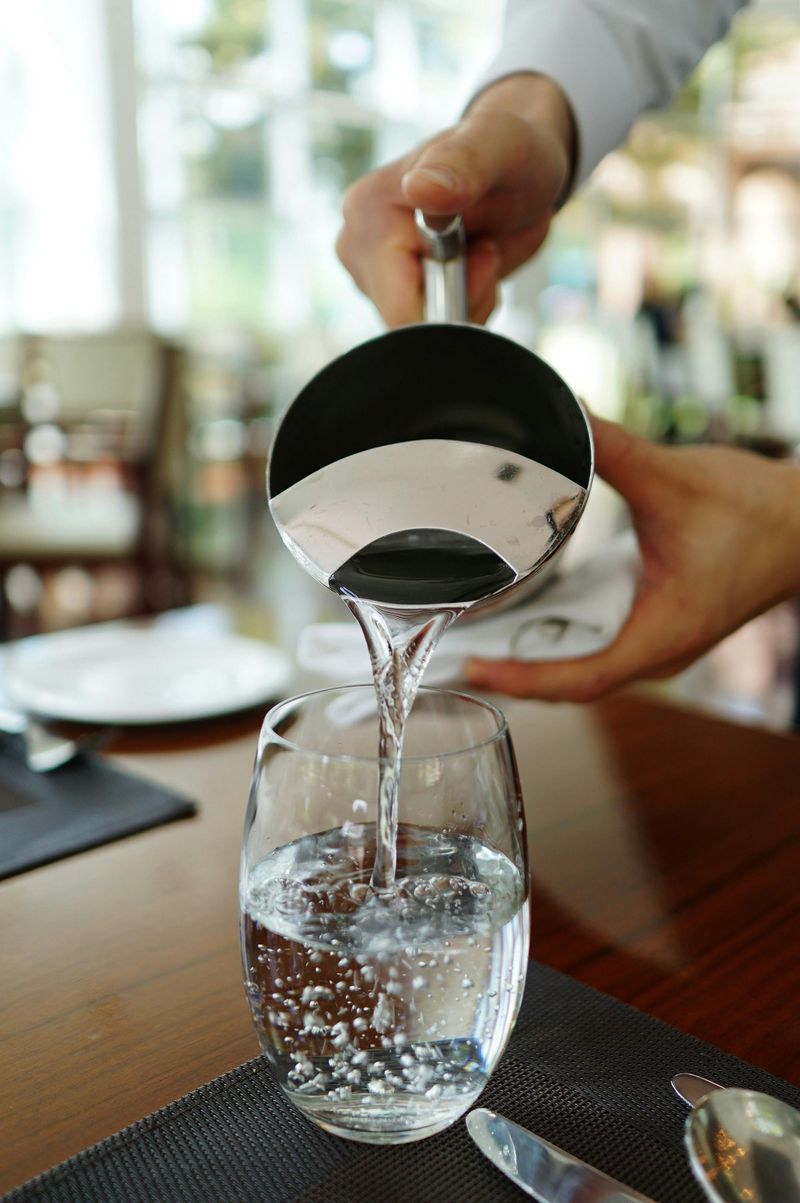
Ordering “just water” might seem trivial, but it requires as much effort as any other drink. Servers need to fetch clean glasses, ice, and possibly lemon slices. It’s not an instantaneous task but part of the service that contributes to your dining comfort. Recognizing that every action takes time enhances your appreciation of the effort involved. Acknowledging these small details helps create a more harmonious dining atmosphere, making the experience more pleasant for both diners and staff.
6. Don’t Blame Them for the Kitchen’s Mistake

When your meal isn’t as expected, it’s natural to feel disappointed, but it’s usually not the server’s fault. Servers act as the bridge between diners and the kitchen, and they’re committed to rectifying any issues. They’ll communicate your concerns to the kitchen and strive to make things right. Patience and understanding go a long way in resolving dining mishaps amicably. By remaining calm and giving them a chance to fix the problem, you help foster a respectful and supportive dining environment.
7. Eye Contact > Snapping, Waving, or Shouting
 © Apéritif Restaurant
© Apéritif RestaurantUsing eye contact to get a server’s attention is both polite and effective. Snapping fingers or shouting across the room is often seen as disrespectful and can disrupt the dining ambiance. Trained professionals usually keep an eye on their tables, so catching their attention with a glance is sufficient. This method respects both the server’s dignity and the environment of the restaurant. It promotes a courteous interaction that enhances the dining experience for everyone involved, from patrons to staff.
8. Stack Your Plates Only If You’re Sure How
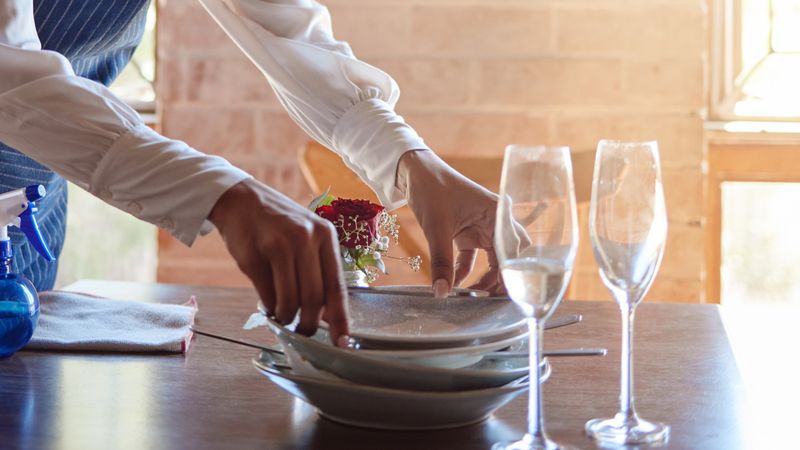
While stacking plates might seem helpful, it can inadvertently create more work for the staff if not done correctly. Servers are trained to clear tables efficiently in a way that minimizes the risk of breakage and maximizes speed. If you choose to stack your plates, ensure that they’re aligned properly without any precarious arrangements. A thoughtful approach assists rather than hinders the staff and contributes to a smoother table turnover. Sometimes, leaving plates as they are is the best help.
9. Don’t Camp Out for Hours

Lingering at your table long after finishing your meal can be inconsiderate, especially during peak hours. Restaurants rely on turning tables to accommodate more guests and maximize their service capacity. While enjoying your time is important, being mindful of the business operations helps ensure a fair experience for everyone. If you’re looking to extend the conversation, consider moving the gathering to a nearby café or bar. This small act of consideration keeps the flow steady for both the restaurant and fellow diners.
10. Split Checks? Say It Early
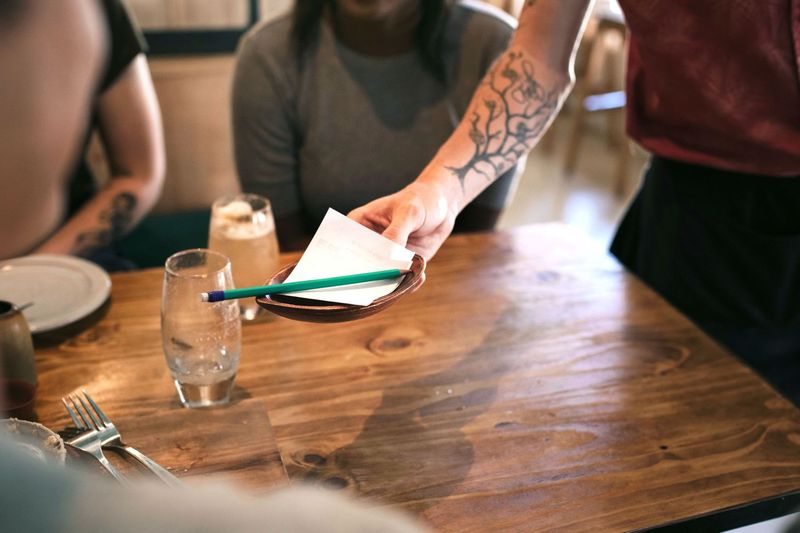
Notifying your server about the need for separate checks at the start of your meal can save time and reduce confusion. Splitting checks is a common request, but it requires extra steps in the billing process. Early communication ensures the server can manage the request efficiently and helps avoid any delays when settling the bill. By planning ahead, you help streamline the dining experience for yourself and the staff, making the process smoother and more enjoyable for all involved.
11. Kids? Keep Them in Check

Families dining out can be a delightful sight, but it’s essential to keep children from becoming disruptive. Kids running around or making excessive noise can impact the dining experience for others. Teaching children to respect the dining space improves the atmosphere for everyone. It’s not just about maintaining peace; it’s about instilling manners that last a lifetime. Understanding the difference between fun and disruption is key, and encouraging this balance ensures an enjoyable meal for all guests.
12. Don’t Assume “The Customer Is Always Right”
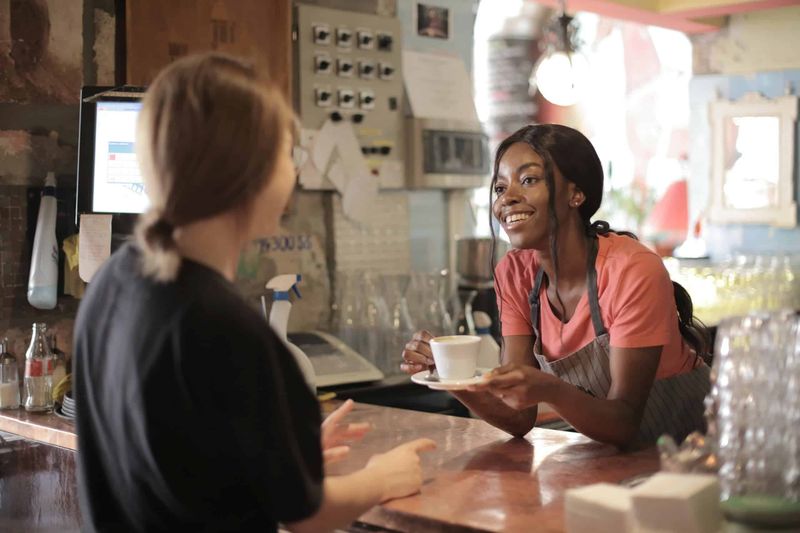
The age-old adage that the customer is always right doesn’t always hold true in dining. Respecting the staff and understanding that mistakes happen ensures a better experience for everyone. While customers are valued and their concerns are important, acknowledging the human aspect of service fosters a more pleasant interaction. It’s about mutual respect and recognizing that servers are there to help, not to be treated unfairly. This balanced approach leads to a more respectful and enjoyable dining experience.
13. A Smile or a “Thank You” Goes a Long Way
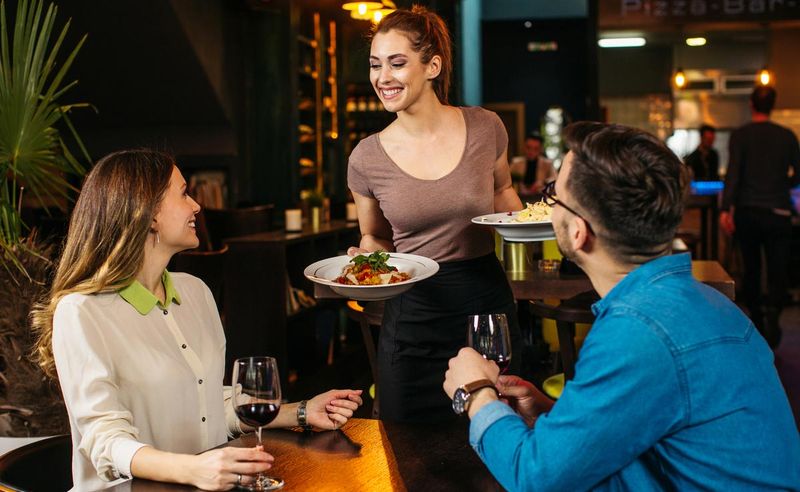
A simple smile or a heartfelt “thank you” can greatly impact the atmosphere in a restaurant. Servers appreciate being acknowledged for their hard work, and such gestures contribute to a positive environment. It’s amazing how a small act of kindness can uplift someone’s day and potentially lead to even better service. Being polite and appreciative doesn’t cost anything, but it enriches the interaction and leaves a lasting impression. This mutual respect creates a welcoming and friendly dining scene.
